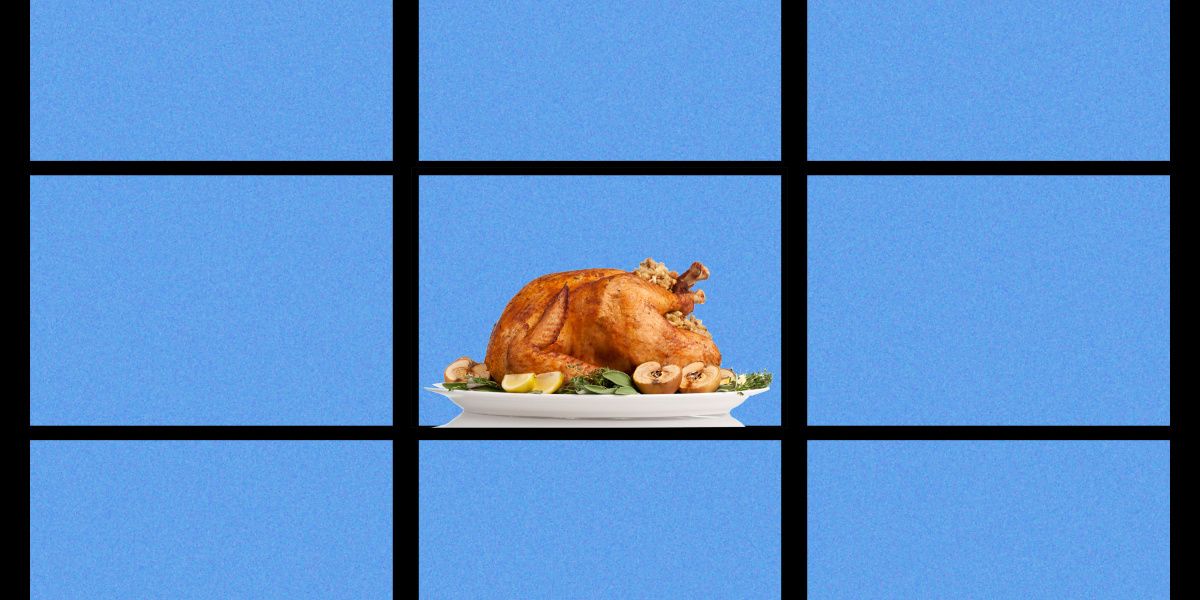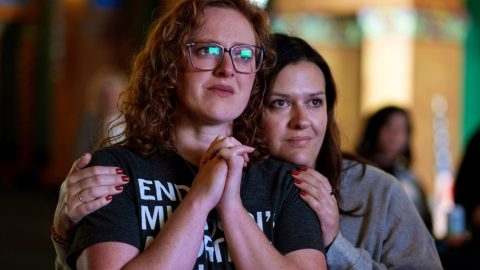
Plan ahead, try different things, and buy some stamps
One size doesn’t fit all. Families should use multiple mediums over the course of the holidays to connect with each other, says Lisa Brown, a director of the trauma program and Risk and Resilience Research Lab at Palo Alto University. “I would not encourage family members to try to check the box and have a single Zoom,” says Brown, who studies the mental-health consequences of catastrophic events on older adults. “We have to choose multiple forms of connecting over the holiday season over a long period of time versus a one-and-done Zoom call.”
But like everything else in the pandemic, successfully finding ways to create sustained connection over time takes a little extra effort these days, especially when it involves introducing new technology remotely.
It’s important to keep in mind that different generations are going to feel more comfortable having meaningful conversations on different mediums. “The medium for older adults is not Zoom and it’s not texting,” says Brown—it’s physical mail.
In other words, this is the year to send a holiday card or letter to your older relatives and friends. Bake some holiday treats that will keep in the mail. If you celebrate Christmas, consider an Advent calendar. Brown also suggests creating a chain letter that grows as it’s sent: each recipient can add a line to a story or drawing you create together.
Troubleshoot problems early
There are other complications when trying to use technology to connect across generations. Navigating the internet can be especially frustrating for some older adults without help or the proper infrastructure. And having a new technology introduced right before a holiday gathering can be stressful.
Even when connections are fostered virtually, waiting until the morning of Thanksgiving to reconnect might be too late. Older relatives will have to be comfortable not only with how the games work but also with the idea of acting not as “Mom” or “Grandma” but just another character in the kids’ virtual world.
Bear in mind, too, that some older adults will live in facilities where well-meaning technology-powered gifts might turn into frustrating disappointments. Brown gave the example of her own intention to buy her dad in a Florida retirement community a digital picture frame that could display photos from her home—until she called the IT person for the facility and discovered that the building’s thick, hurricane-proof walls meant the Wi-Fi-powered frame would never work there.
Be aware that nostalgia can trigger both happy memories and sadness
As the holiday season goes on, maybe you’re considering more structured video-chat activities like carol singing. It’s not a bad idea. But nostalgia could have some unintended consequences this year in particular. Nearly 260,000 Americans have died in the coronavirus pandemic, and tens of millions more have caught the virus. Some families are grieving the dead, while others may be adjusting to the crisis’s long-term effects. Meanwhile, this year has intensified loneliness, interrupted connections, and increased economic hardships. Re-creating holiday traditions virtually could bring comfort for some. But for others, those activities will trigger painful memories of when things were better.
“When you engage the senses, they trigger memories,” Brown says. “Typically older adults harken back to teenage years, their 20s, but for everybody it triggers times back to our youth. Be aware of the fact that it’s a blade that cuts both ways.” Music is a particularly powerful trigger in general, she notes. Christmas carols can draw out good memories, or remind someone of the people who are no longer here.
“We know already about how the holidays can be particularly triggering for people if you’re already feeling lonely or wistful, if you’ve lost a loved one or a close friend,” she says. For those in whom the holidays already trigger painful memories or loneliness, “covid has turned the volume up. Those who were a 6 are now an 8.”
As you’re planning the right way to connect on Thanksgiving, or through the holidays, just be aware of that. Re-creating virtual versions of happy memories from the holidays of the Before Times could lead people to dwell on how lonely they are right now.
And be mindful of putting too much pressure on people, too. Virtual meetings, even social ones, are harder to turn down than invitations for real-life gatherings—after all, where else would you be? And once you’re in them, they require active participation for the duration. There’s no walk after Thanksgiving dinner when the entire day is on a virtual schedule, after all.
If you must Zoom
First things first: Get the technical glitches and hiccups out of the way. No one wants to spend a precious chunk of an allotted Zoom call figuring out why your aunt and uncle can’t connect. If possible or needed, a pre-Zoom meeting checkup with the less technically inclined members of your group can be useful.
Then, think about how to make the conversation flow. Once on Zoom—or whatever video-chatting platform you are using—try to move beyond the usual “How are you?” and “How’s the weather?” space fillers and do a group activity.
“Ask them for a recipe. Ask them to teach you a new skill,” says Brown. “It can make people feel purposeful.” But don’t try to do too much in a single call and turn the whole thing into an interrogation of your great-aunt’s entire life, she cautions.
Set up a question or two up for each household to answer that evokes more than a yes or no answer. Ask older family members about their memories of the holiday when they were younger, or younger ones about a hobby they are passionate about. Steer clear of topics you avoid in real life (Politics in 2020? Nope), and be sensitive to people who are alone, struggling, or experiencing a particularly difficult year.
And finally: Holidays always involve a great degree of tradition and expectation. But this is the year to be adaptable: instead of defaulting to a virtual re-creation of your family’s normal Thanksgiving dinner, maybe try asking what others might find fulfilling or fun.
And if your calendar has already filled up with Thanksgiving family Zooms, this is also the time to remember that it’s okay to log off and have some time to yourself. It is the holidays, after all.





Recent Comments